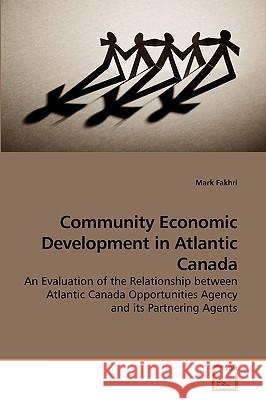Community Economic Development in Atlantic Canada » książka
Community Economic Development in Atlantic Canada
ISBN-13: 9783639236620 / Angielski / Miękka / 2010 / 52 str.
The Atlantic Canada Opportunities Agency (ACOA) has created programs with the intention of fostering economic opportunities for the region. There are numerous instances where its programs have not identified the essential needs of a community, thus creating a benign progression towards economic development. Community members must also be actively involved in their economic development through participation in local organizations to ensure community needs are met. The question then arises, are community needs adequately taken into account when ACOA creates its programs? Posing this question led to this specific study which evaluates ACOA's community economic development programs (CED). One of its programs is to support two types of local agents, Community Business Development Corporations (CBDC) and Regional Economic Development Organizations (REDO). By surveying them we are able to realize how the federal agency interacts with the local agents to identify community priorities and whether financial needs are met. The findings of this survey should raise some awareness among the various participants involved in CED in Atlantic Canada as well as anywhere else.
The Atlantic Canada Opportunities Agency (ACOA) has created programs with the intention of fostering economic opportunities for the region. There are numerous instances where its programs have not identified the essential needs of a community, thus creating a benign progression towards economic development. Community members must also be actively involved in their economic development through participation in local organizations to ensure community needs are met. The question then arises, are community needs adequately taken into account when ACOA creates its programs? Posing this question led to this specific study which evaluates ACOAs community economic development programs (CED). One of its programs is to support two types of local agents, Community Business Development Corporations (CBDC) and Regional Economic Development Organizations (REDO). By surveying them we are able to realize how the federal agency interacts with the local agents to identify community priorities and whether financial needs are met. The findings of this survey should raise some awareness among the various participants involved in CED in Atlantic Canada as well as anywhere else.











